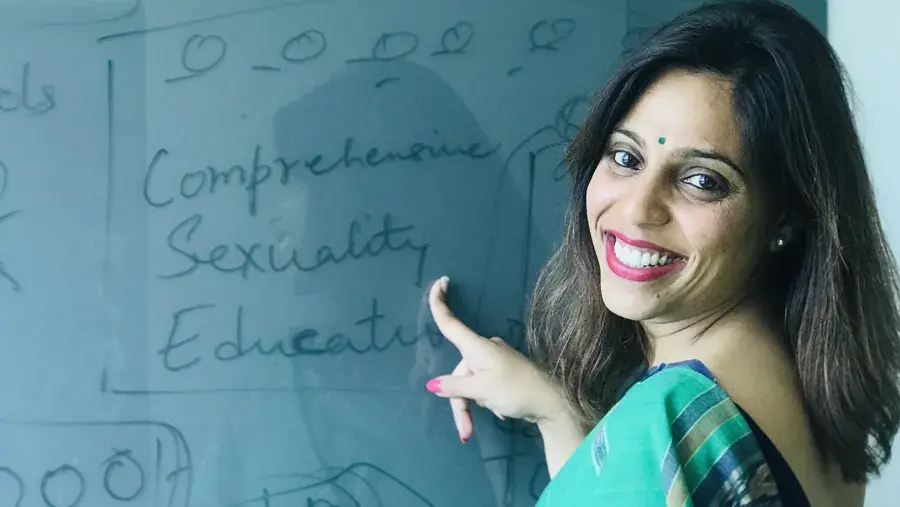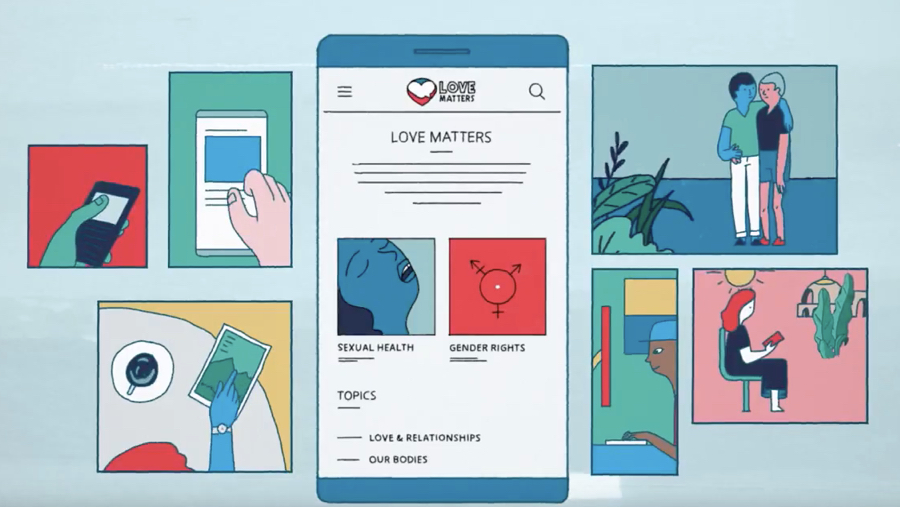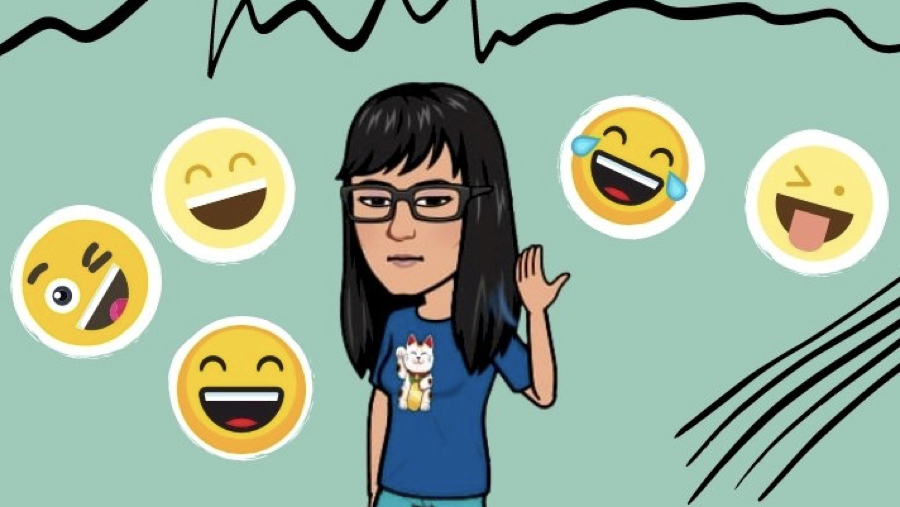Profile: Vithika Yadav
“Young people have their own digital space now”
Vithika Yadav is an activist and educator devoted to making ‘pleasure positive’ comprehensive sexuality education driven by youth. She started 'Love Matters India' which empowers young people with the digital skills to be better informed on issues of bodily autonomy and sexual health and rights.
Vithika says giving young people a voice with media skills is central to her work for social change. “We train young people to become responsible content creators and how to use their mobile phones for social impact,” she says. “It’s a tool not only to connect with people, collect information but also to research, take interviews, collect stories and present news from the ground. It's a public interest journalism programme focused on 21st century skills and the issues young people care about. We call it Mobikaar!”
Through workshops, both online and in person, she connects with young people across the world. The training empowers students to unpack and understand sexual reproductive health and rights, identify issues in their own lives and in their communities, select and collate information, understand storytelling and then build an ecosystem where the narratives are from young people themselves.
“A lot of young people are aspiring content creators,” she says. “They want to use digital platforms, but there is a serious problem when we look at online content and the kind of content that is out there or is being consumed.”
"We need to talk about these issues so that they become more mainstream.”
'Love Matters' asks how young people can be more responsible in creating content and consuming content. “When I came back to India at the end of 2008, I was keen on exploring different avenues to talk about difficult issues,” she says. “This is where my interest shifted to using new media tools.”
Vithika did a five part series called 'Traffic', which was broadcast on MTV India. The program looked at how perceptions around challenging topics like modern day slavery could be influenced. “How do you package information on issues that everybody should care about, which is not just for non-profit officials?” she says. “We need to talk about these issues so that they become more mainstream.”
Vithika invites young people to look at social inequalities and question cultural norms that shape how we are made to feel about ourselves and our bodies. She says the goal is to use digital media as a space to explore complex issues and this evolves into youth-driven sexuality education. She says it is about opening conversations on tough subjects like how society thinks about female pleasure, intimate partner violence, consent, sexual abuse and the culture of shame and silence.
"There was a disconnect between how young people wanted sex ed, their questions about sex and how traditional sex ed programs were addressing topics."
Vithika says doing work on sexual health and rights of young people immediately resonated with her. She was interested in the landscape of comprehensive sexuality education and was keen on exploring what were the unmet needs of young people in this context. She says the process was not easy and ‘pleasure’ was a controversial terminology.
“'Love Matters' was edgy and at the same time facts-based, science-based, youth friendly and non-judgmental,” she says. “In our reserach with young people, we found that there was a disconnect between how young people wanted sex ed, their questions about sex and how traditional sex ed programs were addressing topics.
Vithika says young people wanted information on love, sex and relationships but there was a problem with and how organizations were approaching developing the learning materials.“The idea was to keep the audience at the center of everything,” she says. “The program responded to their questions and their needs. We took a sex-positive based approach to comprehensive sexuality education in India. She says simple, conversational and non judgmental as well as youth-centered content is essential.
"We took a sex-positive based approach to comprehensive sexuality education in India."
“We need to be able to look at it from the perspective of what young people understand,” she says. “What are their challenges? What are their questions? How do we present that information to them?”
For Vithika, 'Love Matters' is a long-term initiative working for social change that challenges and questions harmful social norms and this will not happen overnight. It will take years, even decades but she says she is encouragd by that the movement is making progress. When COVID-19 hit in, the project was already showing positive signs in shifting perceptions on sexuality education. Vithika says digital empowerment played a key role.
“Young people have their own digital space now,” she says. “They are more vocal about it. They're talking about it, they understand it and they feel supported. They don't feel alone in this journey.”
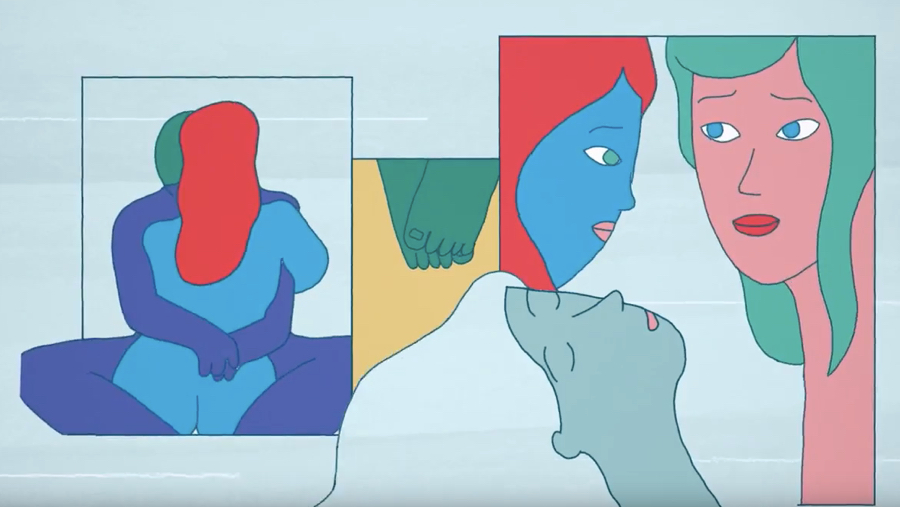
The Pandemic
With a dynamic network of young people connecting, learning and sharing, Vithika knew the community could play a positive role in the COVID-19 response.
“The need for information, the need to be connected was clear,” she says. “Our web traffic went up over the period, the experiences were being shared. Young people needed content and about how to cope during these uncertain times.”
'Love Matters' pivoted to responding to an urgent need for information on across our platforms.“We talked about intimate partner violence,” she says. “Mental and emotional health and how people find themselves in a different space in relationships during lockdown, people talked about everything.”
'Love Matters' was quick to respond to needs through online conversations. As they learned and shared stories, Vithika says the narratives really resonated with other people.
"We knew that we were fulfilling a need. It was a trusted space before the crisis and traffic picked up when people needed a community to feel supported.”
“Our discussion board is a place where people felt they could share and could talk to others and they were not alone,” she says. “We knew that we were fulfilling a need. It was a trusted space before the crisis and traffic picked up when people needed a community to feel supported.”
Vithika says one key to 'Love Matters'' success was making sure that people responded to the needs and connected young people with support. Through a feature called the ‘final clinic’, the site connected people with youth friendly sexual and reproducrive health services. The feature follows up to see how young people are struggling to access services because they are confined to their homes.
Vithika is concerned that the isolation of lockdown has had a major impact on young people because it has cut them off from their friends and support network. “Social life is a big part of young people's lives,” she says. “It was non-existent during lockdowns.”
For 'Love Matters' the challenge was to tackle the issues young people were facing and the services or essentials they were missing. “Sanitary napkins and condoms were not even available,” she says. “There were lots of challenges and we responded to those challenges the best way we could; we talked about them and supported people through distribution drives.”
In addition to the online engagement, Vithika launched 'TeenBook' - India’s first online resource hub on life-skills education during the pandemic. It is a safe space for adolescents, teenagers, parents and educators and hosts crucial information on complex topics. Vithika and her team recently also delivered a successful campaign engaging young people on vaccine hesitancy and shared health advice on how to stay safe from the coronavirus.
"The fact that these conversations are happening is success, because these conversations were just not happening before.”
The public health dimension of her lockdown experience combined with her long-term view of movement-building has Vithika looking beyond the pandemic. She is hoping to channel the digitally mobilised young people to continue progress on gender equality and a more open discussion about sexuality education.
“Changing social norms does not happen overnight or even in a couple of years, it is a process,” she says. “The fact that these conversations are happening is success, because these conversations were just not happening before.”
Vithika says the conversations on these public forums are an open space for young people to question harmful norms and better understand their rights. “Most men feel uncomfortable discussing sex and sexuality because it is about questioning; it is about questioning the power that they hold in a relationship.”
She says these conversations begin to unravel the logic of patriarchal oppression. “The discussion is about millions of things that society has been supporting for years,” she says. “These things give them the power to treat their partners in a certain way, to decide what happens in a relationship.”
“The discussion is about millions of things that society has been supporting for years.”
Vithika says it not easy to engage men in these discussions about love, sex and relationships. She also says it’s critical to long-term change and shifts in power dynamics.
“We have to talk to men as equal partners who are responsible, who are accountable,” she says. “ When we talk about women and their position in society, everyone needs to be a part of the discussion. When the men are included, they also become advocates.”
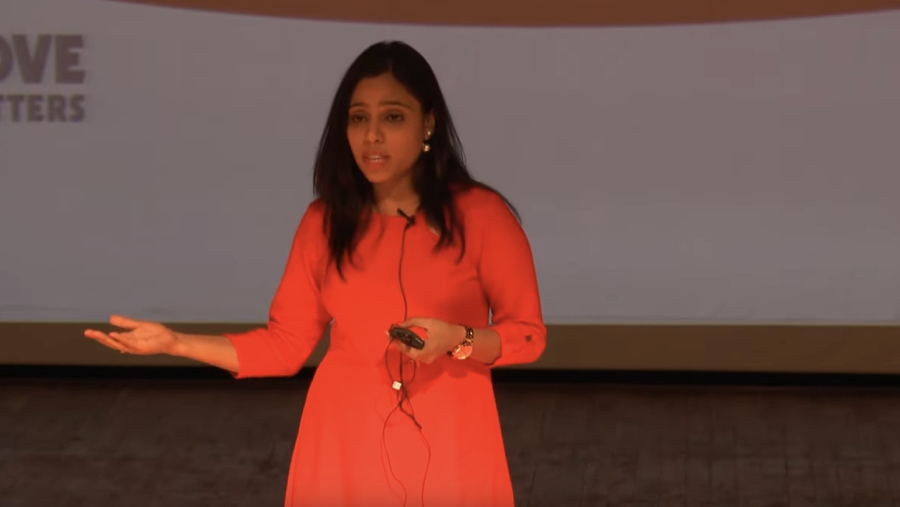
Learn more
Sexual and Reproductive Health In A Digital Age
Vithika Yadav uses design thinking to bust taboos about sex in India

